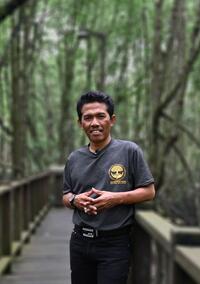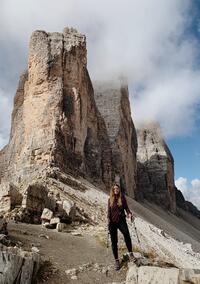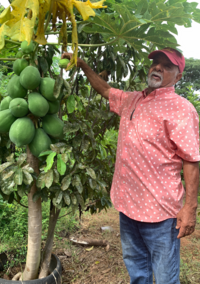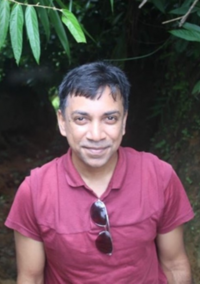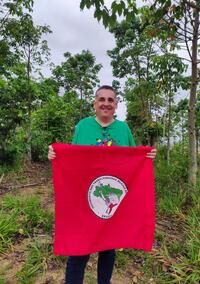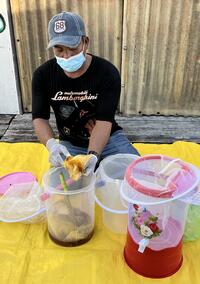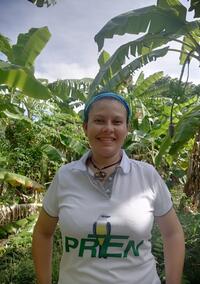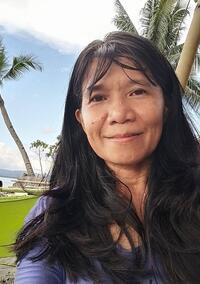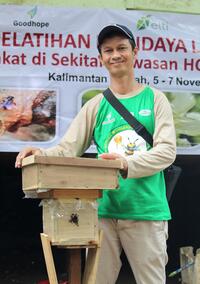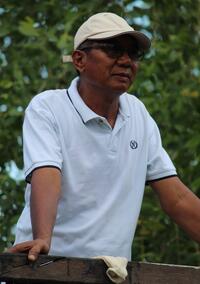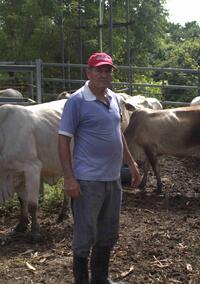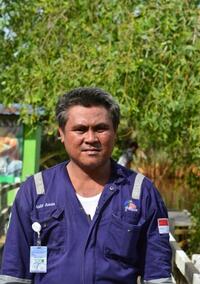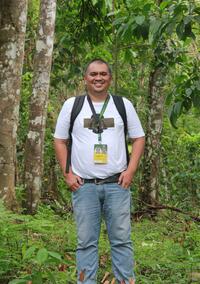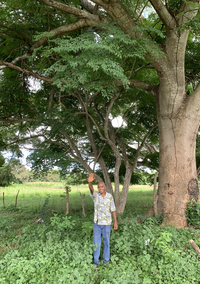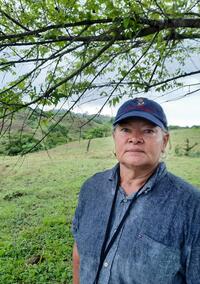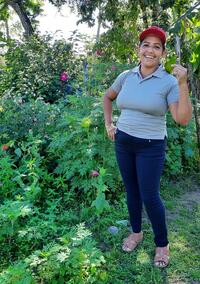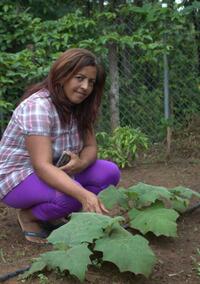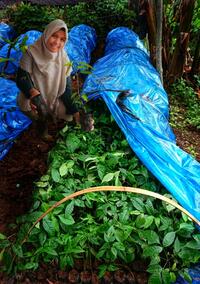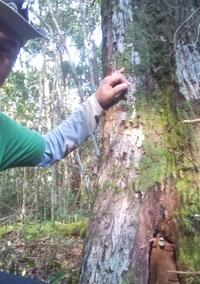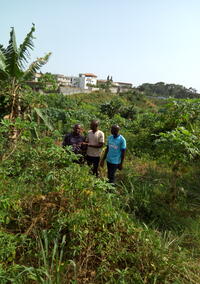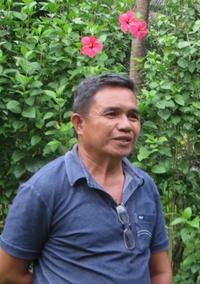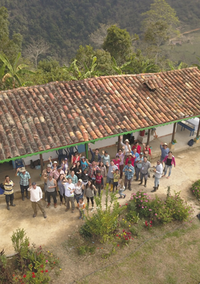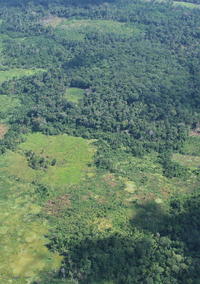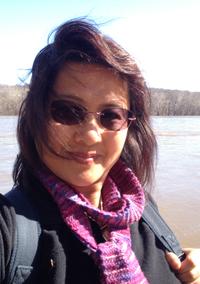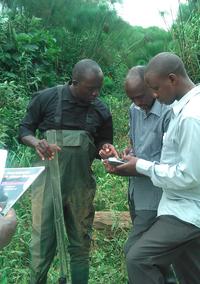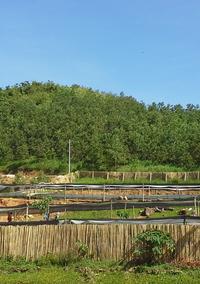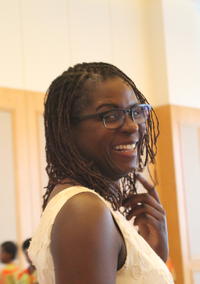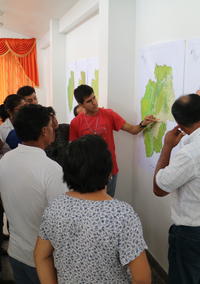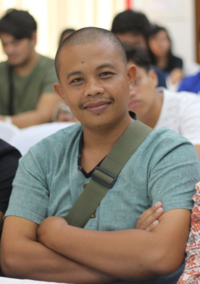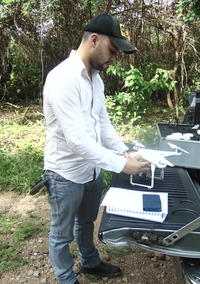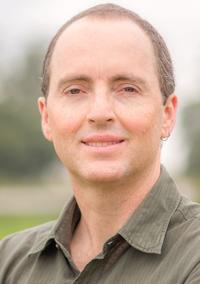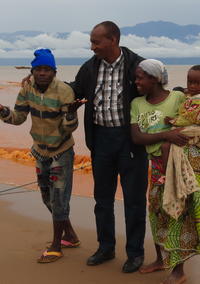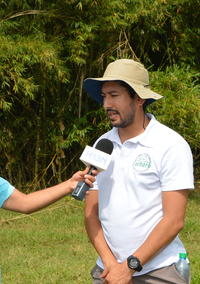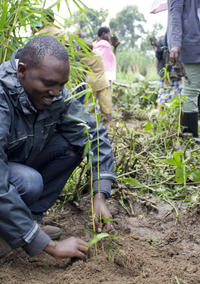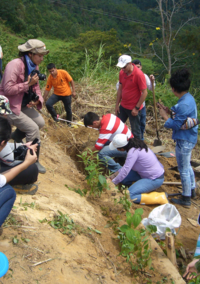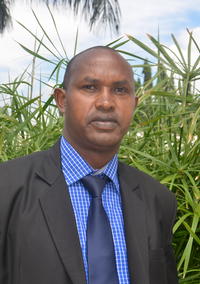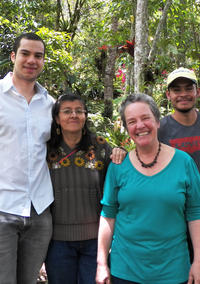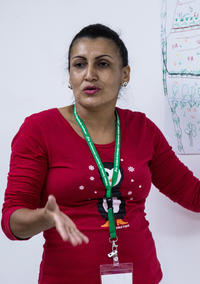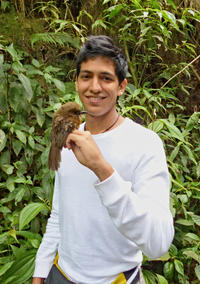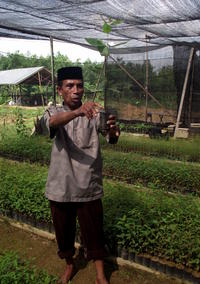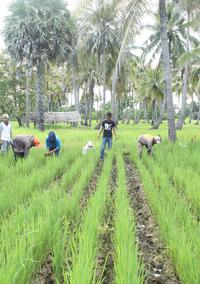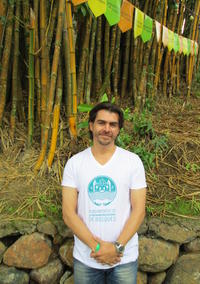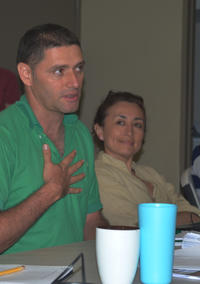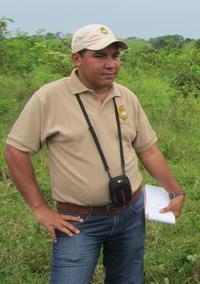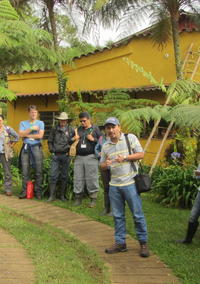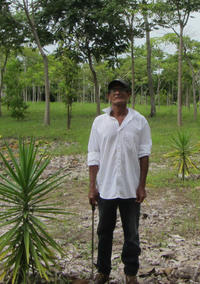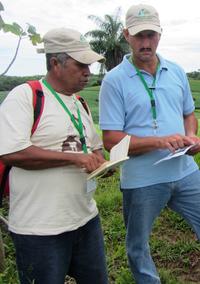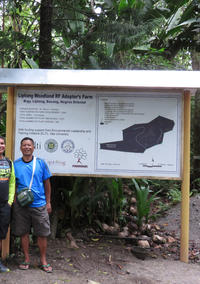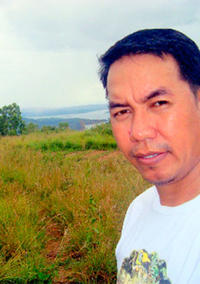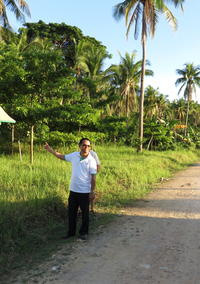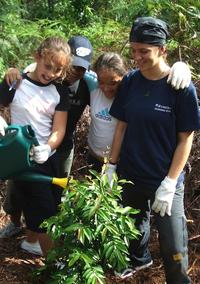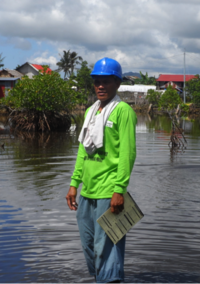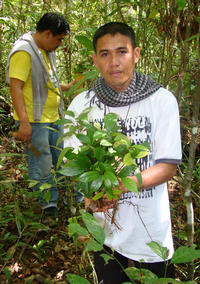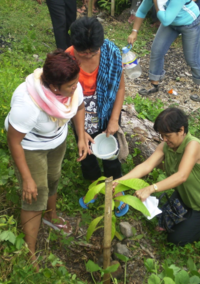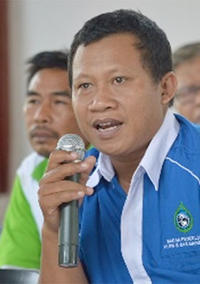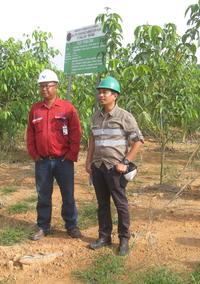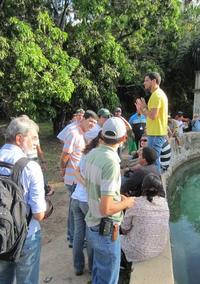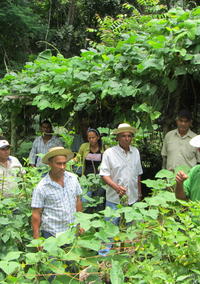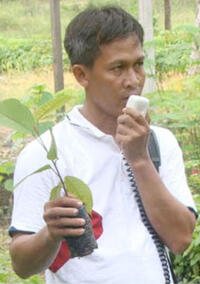You are here
Responding to Humanitarian and Environmental Emergencies in Refugee Camps of Bangladesh
The influx of refugees resulted in the clearing of more than 2,000 hectares of forest, exacerbating the region’s pre-existing deforestation. The landscape changes not only increased the risk of natural disaster but created a complex web of environmental, humanitarian, and climate-related challenges.
Md. Ehsanul Hoque, an environmental officer with UNHCR, the United Nations Refugee Agency, witnessed firsthand the consequences of the crisis. “When the refugees arrived, I visited many of them at the border,” Hoque recalls. “I saw the hardship they endured, and as they settled in the community, their dependence on the surrounding forest for fuel and shelter led to widespread deforestation. My team and I have since worked diligently to address both the environmental and humanitarian impacts of this situation.”
In 2019, seeking to deepen his understanding of the environmental challenges at hand and to learn potential solutions, Hoque enrolled in the inaugural cohort of Yale’s Environmental Leadership and Training Initiative (ELTI) Tropical Forest Landscape certificate program. The program’s interdisciplinary content and rigorous approach to the Capstone project design gave him the tools needed to analyze and address the complex environmental issues facing refugee camps in Cox’s Bazar.
Hoque completed the certificate program with his Capstone project, “Conservation of the Inani Protected Forest and Surrounding Reserved Forest in Rohingya Refugee Operation, Bangladesh.” He has since worked to implement elements of his project, most notably through disaster risk reduction initiatives using forest landscape restoration at the Kutupalong refugee camp, the world’s largest refugee camp.
To reduce deforestation and promote conservation of the region’s limited forest resources, Hoque was a member of a team that introduced liquified petroleum gas (LPG) as a cleaner, safer alternative to firewood for cooking. The initiative continues to provide a sustainable solution, reducing both environmental harm and the health risks associated with burning wood for cooking.
Hoque has also spearheaded efforts to protect and restore more than 700 hectares of degraded land. This initiative not only helped stabilize the environment but also played a crucial role in preserving vital habitats for endangered species, including elephants, whose migration paths were disrupted by human activity. With the support of UNHCR and the International Union for the Conservation of Nature (IUCN), Hoque’s team deployed elephant watchtowers and response units, significantly reducing human-elephant conflict while improving the overall ecosystem. Together, the conservation and LPG cooking projects have led to an 80% reduction in refugees’ wood fuel consumption.
Hoque’s experience with the ELTI program empowered him to refine his approach to environmental management. He explains, “ELTI’s effective facilitation boosted my confidence, as I learned from the outstanding faculty and a strong network of professionals that helped uncover my strengths. The different courses provided me with perspective and awareness about the linkages between management approaches and helped me to design projects that complement each other and lead to the ultimate goal of improved well-being for people and the environment.”
Hoque has recently contributed to the design of a blue-green network, a watershed management strategy designed to mitigate flooding and enhance resilience in refugee-hosting areas. A pilot project has shown promising results, reducing flood-related waste and bolstering community preparedness. In addition, Hoque has been engaging with youth on environmental protection, training them in project identification, monitoring, advocacy, and public speaking. There are now more than 250 Bangladeshi and refugee youth members participating in environmental projects related to solid waste management, biodiversity conservation, and climate change advocacy.
Hoque remains committed to climate action, prioritizing tropical forest restoration as a critical strategy for both environmental conservation and refugee support. His work not only benefits vulnerable communities, it also serves as a model for integrating sustainable development with humanitarian efforts in the face of climate change.
by Airi Gavan, updated January 6, 2025
My approach is to understand the interconnected challenges and identify effective strategies. ELTI’s program not only provided valuable knowledge but also boosted my confidence. Learning from the outstanding faculties and a strong network of professionals helped me discover my strengths and refine my approach.
Md. Ehsanul Hoque
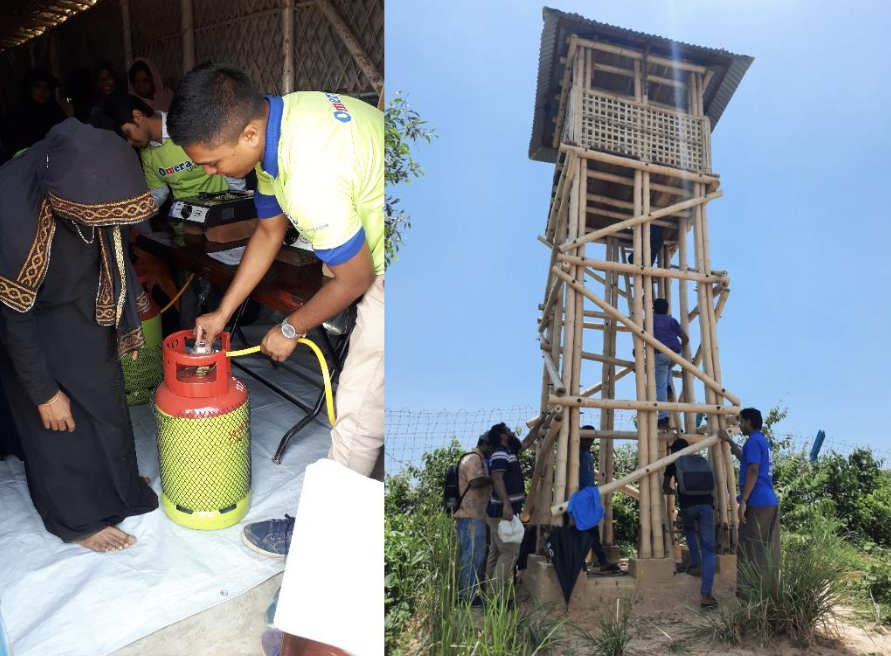
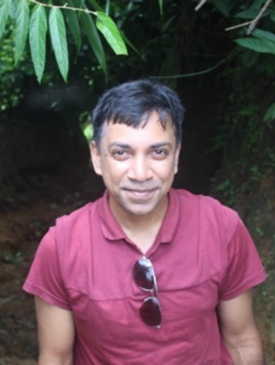
Acknowledgements
Hoque is grateful to the refugees and UNHCR management for their unwavering support in making his engagement with ELTI fruitful.


